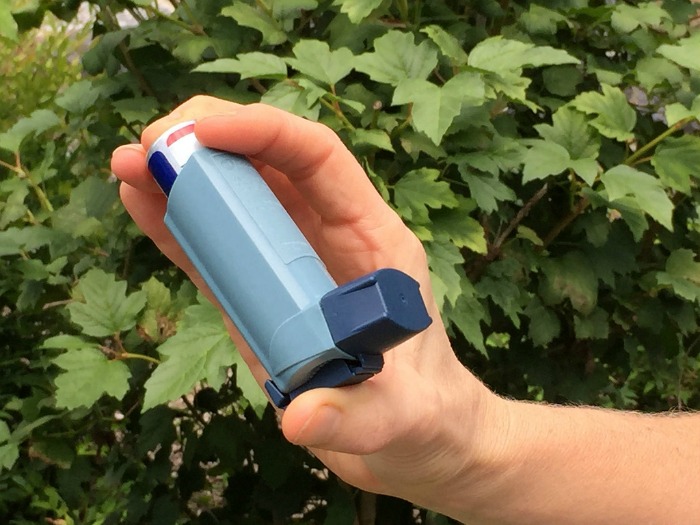First Aid Course. Free First Aid Manual. Free Parking. GST Included. Experienced Trainers. Nationally Recognised Certificate.
With the cooler months here in Australia, it’s a particularly difficult time for the 2.5 million Australians living with asthma. The one in nine Australians living with the long-term lung condition are more likely to experience breathlessness, wheezing, a tight chest or a persistent cough when the temperature is low.
The symptoms can occur at any time and are usually the result of an inflammation in the lungs, specifically in the bronchial tube, that causes the muscles around the tube to tighten up and obstruct the lungs. When this happens, it makes it harder for people to breathe in and out.
“A lot of people with asthma are allergic to things in the environment – dust mites, cats, pollen from various plants, some people are allergic to food,” Professor John Upham tells Starts at 60. “In other people, it’s perhaps more related to things like pollution or infections they have.”
While most people living with asthma can manage the disease quite well with the help of inhalers, a small number of people live with a condition known as severe asthma. Unlike regular asthma where people can experience flare-ups from time to time, severe asthma can be quite serious.
“There’s a group of people, probably around five per cent of the people with asthma, where the disease can get quite severe and they might have repeated attacks, they might be coming to the emergency department at the hospital, spending time at hospital and occasionally, people with asthma die,” Upham explains. “There’s about 400 deaths in Australia each year from asthma. It’s still a significant issue for some people.”
While severe asthma can occur at any age, Baby Boomers are largely impacted because they have likely lived with asthma for decades and the condition can get gradually worse over time, particularly when chronic lung damage has occurred. Unfortunately, doctors and health care workers aren’t fully sure why those with severe asthma don’t respond to treatments that typically work.
More puzzling is the fact many were able to sooth symptoms with medication or inhalers in the beginning, but have built up a resistance as time has gone on. Steroids are often prescribed to these patients to help them manage during an attack or a flare-up, but due to side effects including weight gain, muscle tremors and even liver disease, it’s not a long-term solution.

Still, research is moving at a rapid rate and many with severe asthma are managing their symptoms with biologicals – antibodies that are produced naturally in the body and not typical drugs that have been synthesised in a pharmaceutical factory.
“What they do is cause the antibody to block some of the inflammation that’s happening in the lung and they’re able to do it in a really precise way,” Upham explains. “They knock down the particular cell or protein that’s causing the problem in that particular person’s asthma and they don’t have a lot of the side effects that the steroid tablets have.”
In extreme cases, injections are available to certain patients and when given to certain patients at the right time, can change their life dramatically. The injections, which can cost up to $20,000 annually, are available on the Pharmaceuticals Benefits Scheme funded by the Federal Government. Patients must meet strict criteria and demonstrate the severity of their asthma that hasn’t been managed by standard treatments.
“We’ve had people here at my hospital that were getting admitted to hospital 12 times a year, maybe even going into intensive care,” Upham says. “They’ve gone on the injections and they haven’t been in hospital since. It’s enabled them to lead a more normal life. They still need to take their inhalers but the disease doesn’t dominate their life as it has in the past.”
One of the best ways for people with asthma to protect themselves in vulnerable months is to keep in close contact with their GP. Some patients with severe symptoms book an appointment each week in advance to ensure they’re on top of their condition.

“Some people sometimes try to be brave and stick it out at home, but if people are having symptoms such as waking up at night or finding they’re needing to use their inhaler a lot more than usual or doesn’t seem to be working properly, that’s really a sign they need to get checked out by their doctor, rather than having to contact an ambulance in the middle of the night,” Upham notes. “They should be sure they’re taking their preventive inhalers regularly and make sure they’re up to date with their vaccinations.”
Book in for a first aid course with us at Canberra First Aid today.

